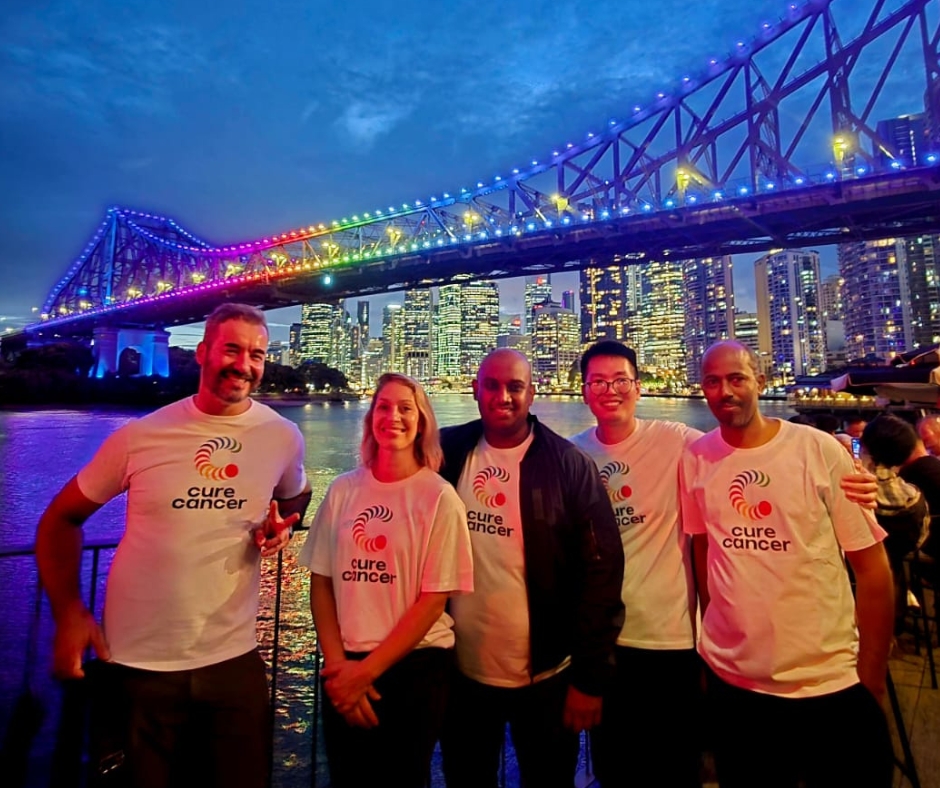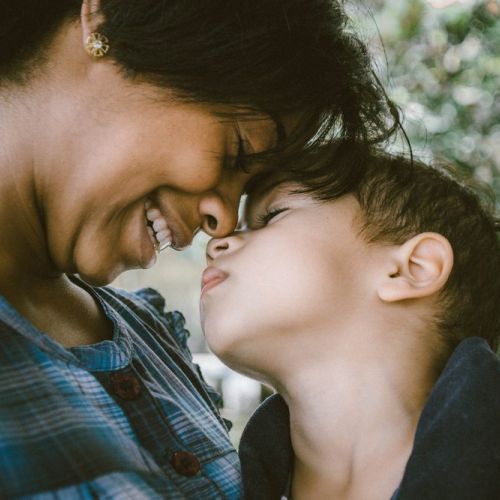Jacky’s bowel cancer story: ‘The fit and healthy one in the family’
By Emily Shaw | 27 May 2025
For Bowel Cancer Awareness Month, we’re sharing Jacky Harrap’s story. When Jacky first started showing symptoms of stage 3 bowel cancer, she wrote them off as tiredness from overworking. Then, she spent her 49th birthday in surgery.

Image: Supplied
Before her diagnosis, Jacky was an intensive care paramedic. When she wasn’t helping people in crisis, she spent her time travelling, cooking, doing CrossFit and socialising with friends and family. Her busy lifestyle meant that when she first started showing symptoms of bowel cancer, she dismissed them as tiredness.
“I kept going to work and doing all the things that you have to do running a household,” Jacky says. It wasn’t until her friend, who was also a paramedic, suggested that she go to the GP that she finally got answers.
A shocking bowel cancer diagnosis

The day after Jacky's surgery. Image: Supplied
After her GP found she had extremely low iron levels, she received an iron infusion and was referred to a gastroenterologist for a colonoscopy and gastroscopy. When she came out of the procedure, the doctor offhandedly told her that she had metastases on her liver. “He didn’t have the best bedside manner,” Jacky recalls.
Due to the challenges of accessing cancer treatment in rural Australia, Jacky looked for surgeons in Melbourne. She ended up going with one recommended to her by a friend. After a last-minute change, Jacky ended up spending her 49th birthday in surgery, with the surgeon and nurses singing her ‘happy birthday’ to her as she fell asleep.
The surgery confirmed a Stage 3 bowel cancer diagnosis.
“I was blown away that at that age, living a healthy life, I had bowel cancer,” Jacky admits. “I just sat on the couch for like two days, which is very unlike me, and thought, ‘What’s going on?' I didn’t even know what to think.”
Her friends and family were shocked, considering bowel cancer was most common in people aged over 50. “My siblings looked at me and said, ‘No, no, it can’t be you. You can’t have bowel cancer; you’re the fit and healthy one in the family,’” she says.
Her diagnosis also came as a wakeup call to her colleagues over 50 who still had their bowel cancer screening kits at home sitting in a drawer. In fact, Jacky’s diagnosis encouraged others to get tested.
“I actually had at least five or six people, thank me for telling us your story because we actually got off our butt and did the test.”
Optimistic in the face of a life-altering bowel cancer diagnosis

Jacky receiving a pedicure during chemo. Image: Supplied
Despite everything, Jacky remained optimistic. After surgery, she had a port put in to receive her chemo and then, only five days later, she began her chemotherapy treatment. In total, she had 12 rounds of chemotherapy. Jacky notes that she was lucky to experience few side effects from the treatment. “I became very skin sensitive,” she remembers. “I couldn’t even sit on the couch. But that only lasted for about twenty-four hours.”
Six months later, she got her port removed – a pivotal moment that she remembers vividly as a milestone in her treatment.
How cutting-edge research is transforming life after bowel cancer treatment for people like Jacky

Jacky celebrating 12 months post-chemo. Image: Supplied
Now that she’s coming up to six years post-surgery, life looks different for Jacky. She no longer works as a paramedic and is now working at the local Turf Club. She still has yearly catch-ups with her oncologist, as well as colonoscopies every year. Even though the general recommendation is to have yearly catch-ups for five years after treatment, Jacky has chosen to continue with them due to the risk of bowel cancer recurrence.
Last year, her oncologist prescribed a new medication shown to prevent bowel cancer in specific people – Cartia, a medication primarily used to reduce the risk of heart attacks in patients with known cardiovascular diseases. “That was because of all the research that’s been done,” Jacky says.
Research is paving the way for life-changing therapies that could redefine people’s treatments and improve outcomes. As someone who collaborates with Cure Cancer-funded researcher Dr Lisa Mielke as a consumer advocate, Jacky is passionate about advocating for further bowel cancer research.
“Some of the things that I had during my treatment and my journey, like robotic surgery, came about from research.”
In Jacky’s mind, research means hope. “If we’re not supporting research, progress will become stagnant.”
Bowel cancer is no longer an ‘old person’s cancer’
If Jacky wants people to take anything away from her story, it’s that bowel cancer isn’t an ‘old person’s cancer’. More and more young people are being diagnosed with bowel cancer, and it’s become the deadliest cancer for Australians aged 25 to 44. Bowel cancer incidence rates have also climbed 266% among 15-24-year-olds. These facts highlight the need for continued bowel cancer research in Australia.
“The only way that they’re going to find out potentially why younger people are getting bowel cancer is to conduct research into it,” Jacky says.
Get screened and know the signs of bowel cancer
Jacky also emphasises the importance of following up on your testing if you experience symptoms, whether that’s doing the bowel cancer screening tests or seeing your doctor. “Don’t try and fit every symptom into a box before you do something about it. And if you’re feeling tired or have blood in your stools, then actually go and get some testing done.”
Over 5,200 Australians lose their lives to bowel cancer every year. But most cases can be successfully treated if caught early through screening and timely diagnosis.










